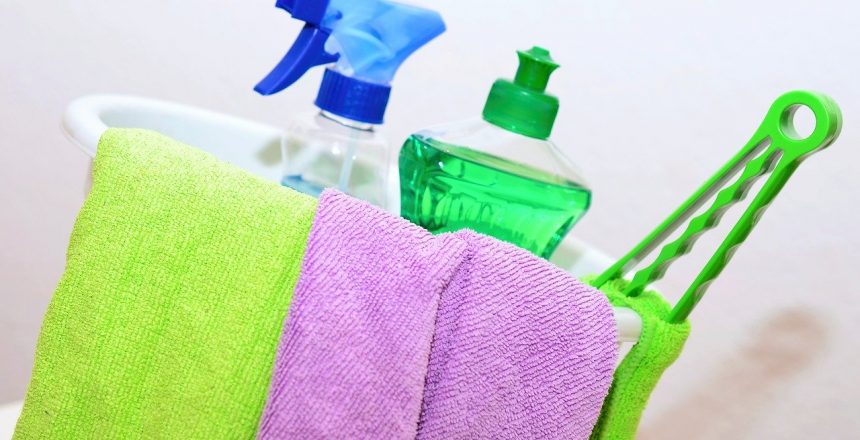Health and safety practices in blocks of flats are essential in order to safeguard leaseholders, surrounding neighbours, and of course your property. Blocks of flats are naturally more dangerous than houses as there are typically more people living in larger, high rise buildings with longer escape routes, which can, therefore, increase the associated risks. As such, there are strict regulations in place to ensure that health and safety requirements are met by the responsible party i.e. the freeholder or Right to Manage company. However, with the outbreak of Covid-19, additional measures must now be put in place to help stop the spread of this deadly virus.
In this health and safety guide for freeholders, we’ll provide you with the government’s advice on fulfilling your health and safety responsibilities during the Covid-19 pandemic. We’ll also outline the health and safety regulations that you must legally adhere to.
Government recommendations for Freeholders during Covid-19
Social distancing has put a strain on everyone but it’s a small sacrifice to make in order to save lives and to support the NHS. However, while adhering to the rules set out by the Government, it can be difficult to know whether you can or should fulfil all of your responsibilities as a freeholder. Ultimately, you want to ensure the health and safety of yourself and your family, but you also have a legal obligation to provide a safe living environment for leaseholders. The Government has therefore set out the following recommendations for freeholders:
It is vital that freeholders (landlords) and leaseholders (tenants) work together to help keep properties safe in these unprecedented times. Freeholders and leaseholders must take a pragmatic, common-sense approach to resolve issues. In particular, leaseholders must let their freeholders know early if there is a problem and freeholders should take the appropriate action. Although current restrictions may prevent routine and obligatory inspections, health and safety standards must still be upheld.
While resources are stretched, the Government recommends a pragmatic approach to enforcement from local authorities. This should, therefore, mean that leaseholders who are living with serious hazards that a freeholder has failed to remedy can still be assured of local authority support. Freeholders should also know that they should not be unfairly penalised where Covid-19 restrictions prevent them from meeting some routine obligations.
Freeholder’s repair obligations have not changed. Leaseholders have a right to a decent, warm and safe place to live and it is in the interests of both leaseholders and freeholders to ensure that properties are kept in good repair and free from hazards. Good management requires regular review and maintenance of a property, but the Government understands that planned inspections may be more difficult at this time. However, there is no reason to allow for dangerous conditions to persist.
The Government are encouraging leaseholders to inform freeholders early and engage constructively in the event that they encounter issues with the condition of the property. Technological solutions such as smartphones can be used to reduce the need for in-person inspections of property issues. Where reasonable and safe for you, and in line with other Government guidance, you should make every effort to review and address issues brought to your attention by leaseholders and keep records of your efforts.
Inspectors or maintenance workers can still visit blocks of flats and multi-occupied properties for essential or urgent work such as inspecting and testing fire alarm and emergency lighting systems. Urgent health and safety issues, which affect leaseholder’s ability to live safely will also need to be addressed. This could include (but is not limited to):
- A problem with the fabric of the building, for example, the roof is leaking
- A security-critical problem, such as a broken window or external door
- If equipment a disabled person relies upon requires installation or repair
Freeholders must carry out all scheduled gas and electrical safety inspections and tests where required. Where inspections have already been carried out, documents can be provided to leaseholders by post or in some circumstances it may be possible to provide digital copies. Freeholders should make every effort to abide by existing gas safety regulations and electrical safety regulations. There are provisions in both regulations to account for situations in which a freeholder cannot do this and they must demonstrate that they have taken all reasonable steps to comply with the law.
If you are not able to gain access to the property due to restrictions in place to tackle Covid-19, or are not able to engage a contractor to carry out the necessary work, the government recommends that you document your attempts to do so together with all correspondence with your leaseholders.
You can see the latest Government guidance on Coronavirus here https://www.gov.uk/coronavirus.
Cleaning in blocks of flats
If the lease allows, you will be able to appoint a cleaner for the communal areas within your block of flats, that is, if you haven’t done so already. The costs for cleaning are recoverable from leaseholders via the service charge when permitted by the lease of course. Many freeholders have requested extra cleaning of communal areas as a result of Covid-19 and following Public Health England’s guidance, which is to, ‘clean and disinfect regularly touched objects and surfaces using your regular cleaning products to reduce the risk of passing the infection on to other people’.
However, freeholders should be aware that any costs must be reasonable in order to be recovered from leaseholders. So, if the costs for cleaning rise as a result of the extra measures put in place, leaseholders or a tribunal must agree that it is a reasonable increase. With stringent cleaning practices offering greater protection from Covid-19, it’s likely that leaseholders will welcome extra efforts in their building; but be careful not to take it too far otherwise you may get lumbered with the bill. Alternatively, it may be possible to cut back on some non-essential services during this time in order to cover the costs for additional cleaning.
Risk assessment of the communal areas in blocks of flats
Under the Management of Health and Safety at Work Regulations 1999, all blocks of flats must have a health and safety risk assessment carried out for the communal parts. Although a block of flats is primarily a building in which people live, for cleaners and other contractors, it is their place of work. As such, the risks must be assessed to ensure that you are aware of what may cause injury to what people and that you have taken the appropriate actions to minimise any risks and to preserve the safety of the contractors.
You must ensure that every single communal part of your block has been assessed appropriately. While you may think that this only includes areas such as the entrance halls and stairwells, you need to think much broader. The roof, gardens, plant rooms, meter cupboards and lift access areas are all considered communal parts, which must all form part of the risk assessment to be carried out at least once a year. Although there is no formal requirement to keep a record of risk assessments if your block does not employ staff or contractors, it is prudent to do so to help protect you from facing future negligence claims.
When a risk assessment has been carried out, it should enable you to prove that the proper checks were made; significant risks assessed; everyone who might be affected was included; sensible precautions put in place and that any remaining risk is low. If you do not feel confident with completing this task, it is possible to employ a specialist Risk Assessor who you can work alongside to identify applicable issues to include.
Fire safety in blocks of flats
The Regulatory Reform (Fire Safety) order 2005 stipulates that every block of flats must legally undergo a fire risk assessment. This only applies to the common parts of the building and must be carried out by the responsible person i.e. the freeholder or Right to Manage company. The assessment must evaluate the risk to people from fire, taking into account existing fire safety measures, and determine whether additional measures are necessary. It is crucial that this information is reviewed regularly and kept up to date as Fire Officers will be able to enter your building at any time to inspect and ask to see the fire risk assessment. If they are not satisfied with your compliance, they can issue enforcement notices to improve fire safety.
Complying with the Fire Safety Order will inevitably incur costs over time such as for employing a professional fire risk assessor, replacing fire extinguishers and fire doors, etc. These costs are usually recoverable from the leaseholders but only when the lease allows. In cases where the lease does not provide for such an expense, freeholders or the person responsible for fire safety may have to foot the bill themselves in order to comply with this statutory requirement. Conversely, there may be a ‘sweeping up’ clause in the lease that enables the recovery of costs for unforeseen items of expenditure but as highlighted above all costs must be reasonable.
Working at heights in blocks of flats
It’s often the case with blocks of flats that at some point you will require someone to work at height. This could be for cleaning windows, changing light bulbs, fixing the roof or cleaning gutters. Following the Work at Height Regulations 2005, you are required to take the necessary precautions to prevent death and injury caused by a fall from height. Ultimately, if working at height can’t be avoided the proposed works must be assessed and an action plan put in place to ensure that the task is completed in such a way as to minimise the risk.
When contractors are employed to carry out work at heights, they will also have a responsibility to carry out a risk assessment, which you must check and approve. You must also ensure that works in your building are completed by competent people while being properly supervised and that any equipment used, such as ladders are checked regularly
Electrical safety in blocks of flats
Any equipment supplied to employees or contractors must be properly maintained and have a regular electrical safety test in accordance with recommendations provided by the Electrical Safety Council (ESC) and the Electricity at Work Regulations 1989. You must also arrange for fixed wiring and portable electronic equipment in the common parts of the building to be tested. Furthermore, lifts must be inspected under the Lifting Operation and Lifting Equipment Regulations 1998 and SAFed Guidelines on the supplementary tests of in-service lifts.
Gas safety in blocks of flats
Under the Gas Safety (Installation and Use) Regulations 1998, freeholders are required to ensure gas appliances, fittings and flues are maintained and in a safe condition at all times. In order to comply, you must employ a Gas Safe registered engineer to carry out an annual gas safety assessment on every gas appliance and flue that are utilised in the common parts of the building.
You are not responsible for leaseholder’s personal gas appliances; however, you are obliged to maintain the gas pipework into the building. Therefore, a qualified engineer must also provide maintenance services to gas pipework, appliances, and flues in accordance with the manufacturer’s instructions. Furthermore, leaseholders must be provided with a record of the annual gas safety assessment within 28 days of it being completed, while gas safety records must be retained by the freeholder for at least two years.
Asbestos in blocks of flats
According to the Health and Safety Executive, who enforce the Control of Asbestos Regulations 2012, any building that was built prior to 2000 may contain asbestos. So, if your building falls into this rather broad category, and if you’re responsible for the management, health and safety, you will need to be aware of any materials that contain asbestos in the common parts only. This can include entrance ways, stairwells, lifts, corridors, the roof and ultimately the main structure of the building.
You will need to employ an asbestos expert to carry out a survey of your building to identify where asbestos can be found and to assess its condition. The surveyor will also be able to advise you on ways to manage the associated risks. While it is not necessary to remove asbestos, you will need to inform any contractors of its location in your building. As with fire safety works, the costs for the asbestos survey may be recoverable from leaseholders if there is a provision for this in the lease.
Legionella in blocks of flats
Legionella is a bacterium commonly found in water systems, which can cause Legionnaires’ disease. Similarly, to the above, you’ll need to employ a legionella expert to carry out an annual survey of pipes, tanks, and taps in the communal parts of your building. If any risks are identified, the surveyor will provide you with an action plan to tackle the problems.
Control of substances hazardous to health
Hazardous substances can be found in cleaning products and garden chemicals, so if you’re supplying any such items to employees, you’ll need to carry out a risk assessment, provide instructions for safe use and protective clothing where required. Where contractors are using hazardous substances on your property, you’ll need to obtain a COSHH risk statement from them.
Reporting of injuries, diseases, and dangerous occurrences in blocks of flats
Just like any other business, you are required to report work-related accidents, diseases, and dangerous occurrences, even where contractors have been used. Accidents should be reported online via the HSE website: website hse.gov.uk/riddor and contractors informed when applicable.
Smoking in blocks of flats
Although you may already prohibit smoking in the common parts of your building, this must now be done so by law. You are therefore required to display no-smoking signs that comply with the specific regulations for the location of your block. England and Wales have different signage requirements, so you’ll need to ensure that you display the right ones. Failure to comply is an offence that can result in a fine of up to £2,500. Similarly, if leaseholders are caught smoking in non-smoking areas, they can be fined up to £200. Leaseholders are permitted to smoke in their own personal demise; however, you and your employees have a right to refuse to enter their flat in order to protect your health and safety.
Insuring for health and safety risks in blocks of flats
It is highly advisable to purchase employer’s liability insurance to protect yourself financially against claims. Accidents can occur in your building even with the most meticulous planning and preparation. And while this careful approach will likely minimise your chances of being found liable in a court of law, it is still possible, and monetary compensation awards can be hefty. In the same way, you may benefit from purchasing a public liability insurance policy to cover you if a leaseholder or visitor in your building sustains an injury.
Final thoughts
Health and safety should never be ignored, no matter the cost or difficulty in doing so as people’s lives are at stake and the penalties can be severe. While we’re currently facing new challenges as a result of Covid-19, it’s critical that freeholders and leaseholders work together to try to protect each other and the wider community from this virus. However, it is important to remember that as the person responsible for management, you have a duty to provide a safe living environment for your leaseholders and a working environment for employees and contractors.


